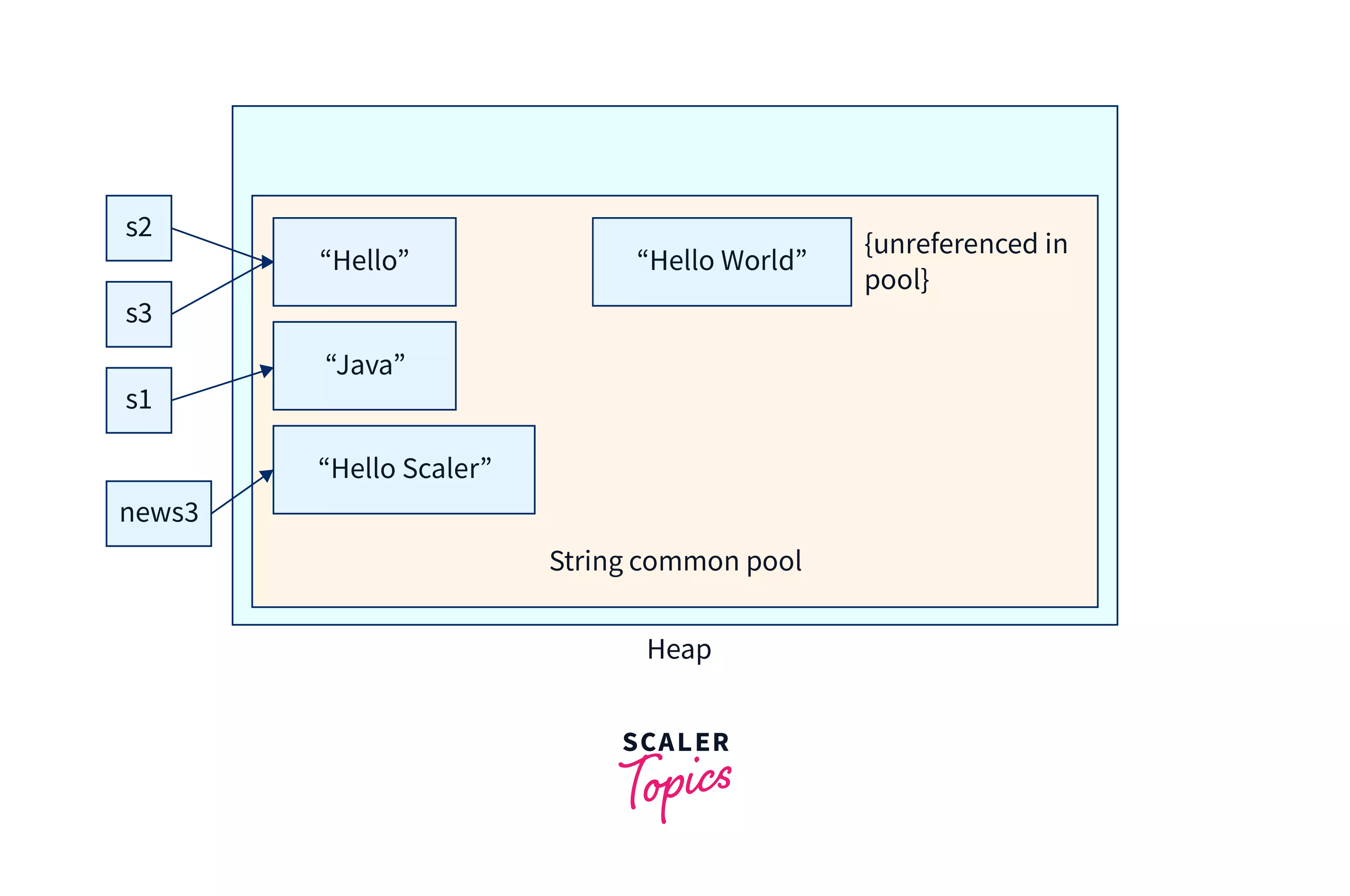Why Are Strings Immutable in Java? Safety And Security and Performance Perks
Immutable Strings: A Trick Part in Ensuring Information Consistency and Dependability
In the world of data monitoring, the significance of unalterable strings can not be overemphasized. These imperishable sequences of personalities play an essential role in supporting the honesty and accuracy of information within systems. By maintaining a state of immutability, data consistency is guaranteed, promoting a structure of dependability whereupon critical processes rely. The concept of immutable strings goes beyond mere formality; it is a linchpin in the facility internet of information governance. As we explore the advantages, implementation methods, and functional applications of immutable strings, a more clear photo arises of their indispensable nature in protecting the digital landscape.
The Idea of Immutable Strings
Unalterable strings, a basic principle in shows, refer to strings that can not be modified once they are created. Essentially, as soon as a string value is appointed, any kind of procedure that shows up to customize the string actually creates a new string. This immutability ensures data uniformity and integrity in applications, as it avoids unexpected changes to the original data.
Advantages in Data Consistency

Information consistency is essential in different elements of software program development, consisting of database management, multi-threaded settings, and dispersed systems (Why are strings immutable in Java?). Immutable strings contribute significantly to attaining this uniformity by protecting against information corruption because of simultaneous accessibility. In circumstances where several procedures or strings connect with the exact same information at the same time, immutable strings work as a secure against race problems and synchronization issues
In addition, the immutability of strings streamlines debugging and testing procedures. With immutable strings, developers can trust that once a string is established, it will stay unmodified, making it simpler to map the source of errors and ensuring that examination instances generate consistent outcomes. This reliability in information handling ultimately results in much more robust and stable applications.

Carrying Out Immutable Strings
Making certain the immutability of strings calls for a thoughtful technique to their application in software growth. One vital method is to design string classes in a way that prevents alterations once a string things is produced. By making strings immutable, designers can enhance information consistency and integrity in their applications.
To apply immutable strings effectively, designers should favor producing brand-new string objects as opposed to changing existing ones. This technique makes certain that when a string is appointed a value, it can not be transformed. Furthermore, any kind of procedure that shows up to modify the string must develop a brand-new string with the preferred changes rather than modifying the original.
Furthermore, using unalterable strings can simplify concurrency monitoring in multi-threaded settings. Because unalterable strings can not be transformed after production, they can be safely shared among numerous strings without the danger of information corruption.
Role in Dependability Assurance
In software application growth, the utilization of immutable strings plays an important function in guaranteeing the integrity of information operations. Immutable strings, when developed, can not be changed, ensuring that the information they stand for remains consistent throughout the application's implementation. This immutability residential property provides a level of assurance that the information being refined will certainly not be unintentionally transformed, causing unexpected outcomes or mistakes in the system.
By click site including immutable strings right into software application style, designers can enhance the dependability of their applications by lessening the risks linked with mutable data - Why are strings immutable in Java?. Immutable strings assist in protecting against information corruption or unexpected alterations, which resource can be particularly vital when taking care of sensitive info or when information integrity is vital
Moreover, using immutable strings simplifies simultaneous handling, as several strings can safely access and share string data without the threat of one string altering the web content while another reads it. This facet contributes significantly to the general integrity of the software program system, making sure constant and foreseeable habits in data handling procedures.
Applications and System Combination
The seamless assimilation of immutable strings right into different applications and systems is pivotal for guaranteeing robust data uniformity and dependability throughout varied technological settings - Why are strings immutable in Java?. Immutable strings play a vital role in improving the integrity of information exchanges and interactions within facility software ecosystems. By integrating immutable strings right into applications, developers can alleviate the risks related to data tampering, unapproved modifications, and unintentional alterations, consequently fortifying the general security position of the system
In the context of system combination, unalterable strings work as a foundational component for developing protected communication networks and facilitating seamless data transfers between different parts. Their unalterable nature makes certain that information transmitted between systems stays unmodified and proven, reducing the likelihood of inconsistencies or errors that might endanger the honesty of the entire system. Additionally, unalterable strings can boost interoperability between disparate systems by offering a standardized style for data representation, allowing a lot more effective data handling and exchange methods across interconnected systems. By embracing unalterable strings in applications and system assimilation procedures, companies can fortify their data facilities and support the integrity and consistency of his response their info possessions.
Conclusion
Finally, immutable strings play a vital duty in preserving information consistency and reliability in various applications and system combinations. By ensuring that strings can not be changed as soon as produced, the stability of data is preserved, reducing the risk of inconsistencies and mistakes. Executing immutable strings can dramatically enhance the dependability of systems, eventually leading to even more exact and trustworthy data handling.
